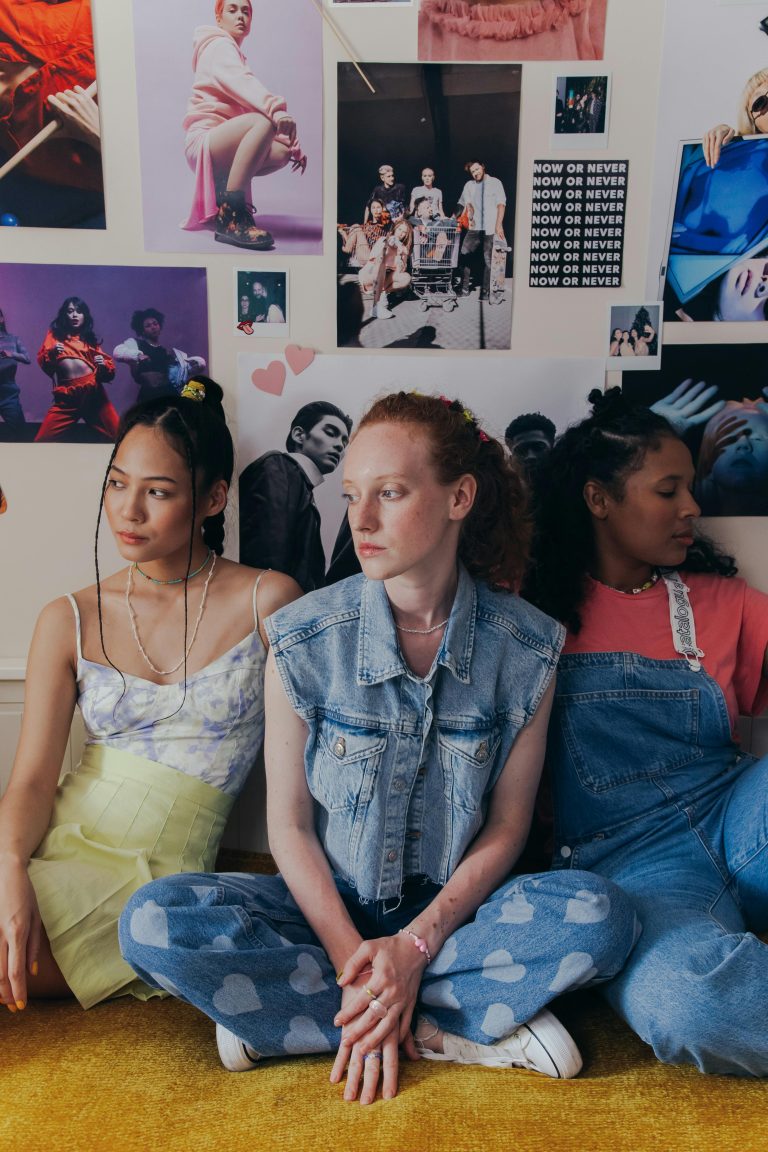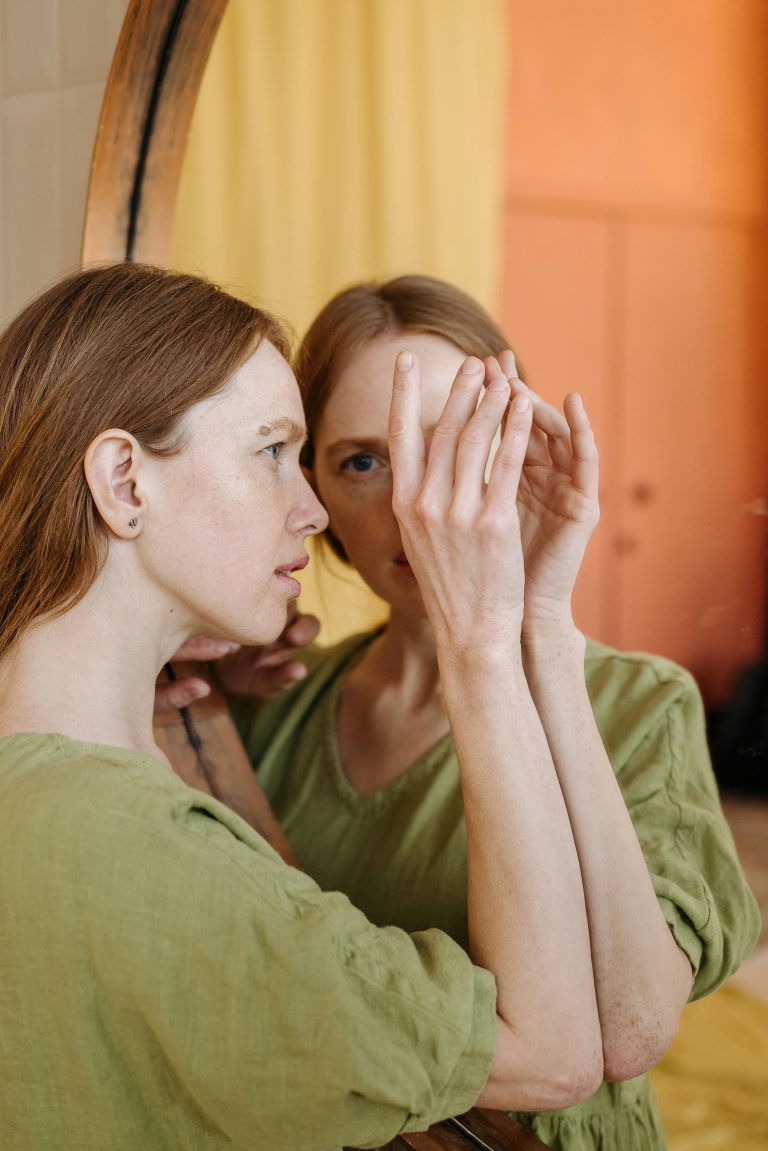Starting Over After 30? How to Rebuild Your Life with Confidence
You’re scrolling through social media, bombarded by announcements of engagements, baby showers, and new home purchases.
You slowly get that sinking feeling in your stomach when you realize everyone around you seems to be “on track” while you’re still trying to figure things out.
Don’t worry, you’re not alone. Many people in their 30s and beyond experience this overwhelming sense that they’re somehow behind in life’s imaginary race.
Let’s talk about something I’ve experienced personally and heard from countless people: the feeling of starting over when everyone else seems to be thriving.
Whether you’ve faced a career setback, a relationship ending, financial struggles, or simply feel disconnected from the traditional “life timeline,” this post is for you.
Why We Feel Left Behind in Our 30s
There’s something particularly challenging about feeling “behind” in your 30s.
In our 20s, exploration and uncertainty are expected, even celebrated. But once we cross that invisible threshold into our 30s, societal expectations suddenly become much more defined:
- the social media highlight reel creates a distorted view of others’ lives, making it seem like everyone is thriving except us;
- culturally ingrained timelines tell us we should have achieved certain milestones by now;
- family pressure can intensify as others inquire about marriage, children, or career progression;
- biological considerations may create additional pressure, especially for those who want children;
- financial milestones like homeownership seem increasingly out of reach in today’s economy.
According to psychologists, this feeling is so common it has a name: social comparison theory. We naturally evaluate our own worth based on how we stack up against others. It’s very human, but not in our best interest.
In the past, we might have compared ourselves to our immediate community, but social media has expanded our comparison group to include virtually everyone!
The Truth About Life Timelines
There is no universal timeline that applies to everyone.
The conventional milestones we’ve been taught to chase (like college degree by 22, career by 25, marriage by 28, house and kids by 35) are cultural constructs that don’t account for the beautiful diversity of human experience.
Consider these facts:
- the average age of first marriage in the US has increased to around 30 for men and 28 for women, up significantly from previous generations;
- many successful people found their calling later in life (Vera Wang didn’t start designing clothes until 40, and Julia Child published her first cookbook at 49);
- the concept of a linear career path is outdated, with the average person changing careers (not just jobs) 5-7 times in their lifetime;
- research shows that life satisfaction follows a U-curve, with happiness often reaching its lowest point in one’s 40s before increasing again.
When we internalize these rigid timelines, we set ourselves up for disappointment. Life rarely unfolds according to plan, and that’s not a failure: it’s being human.
What Starting Over Really Means
“Starting over” sounds dramatic, but it’s rarely a complete reset. Even when we feel we’re beginning from scratch, we carry forward our experiences, skills, and wisdom from previous chapters of our lives.
Starting over could mean:
- entering a new career field after realizing your current path isn’t fulfilling;
- rebuilding your social circle after a move, divorce, or other life transition;
- learning to be single again after the end of a significant relationship;
- recovering financially after a setback or major expense;
- reimagining your future after health challenges or personal loss.
Whatever form it takes, starting over requires courage. It means facing uncertainty and stepping outside your comfort zone. And while it may feel isolating, millions of others are navigating similar transitions! You got this.
The Hidden Benefits of Starting Over Later in Life
Starting over in your 30s or beyond comes with distinct advantages that aren’t available to those following a more traditional path:
1. You Know Yourself Better
By your 30s, you’ve had enough life experience to recognize what truly matters to you. You’re less likely to chase external validation and more likely to make decisions aligned with your authentic self.
When I had to rebuild my career, the transition forced me to reflect on what I actually wanted, not what I thought I should want. This self-knowledge proved invaluable in creating a more fulfilling path forward.
Since then, I’ve changed careers twice (by choice) to better align with my newly discovered direction.
2. You Have Transferable Skills
Everything you’ve done up to this point has taught you something. Even experiences that seem unrelated to your current goals have built transferable skills that can serve you well.
Take inventory of what you’ve mastered. Are you good at managing relationships? Solving problems creatively? Organizing information? These abilities cross industry and life boundaries.
3. You Value Time Differently
When we’re younger, time can feel infinite. In our 30s and beyond, we develop a healthier respect for time as a finite resource. This perspective shift often leads to more intentional choices and less time wasted on situations or relationships that don’t serve us.
4. You’re More Resilient Than You Realize
If you’re starting over, you’ve likely weathered disappointments or challenges already. This resilience (the ability to adapt and continue despite difficulty) is perhaps the most valuable asset you possess.
Research in psychological resilience shows that our capacity to bounce back can actually increase with age and experience, especially when we consciously reflect on what we’ve overcome.
Practical Steps for Starting Over Successfully
While there’s no one-size-fits-all roadmap for rebuilding your life, these strategies can help you navigate this transition with more confidence:
Reframe Your Narrative
The stories we tell ourselves are powerful. Instead of viewing your situation as “falling behind,” try reframing it as “taking a different path” or “choosing an authentic life.”
Cognitive behavioral therapy research suggests that how we interpret our experiences significantly impacts our emotional response to them. Practice catching negative self-talk and challenging it with more balanced perspectives.
Try this: When you notice yourself thinking “I’m so behind,” consciously replace it with “I’m exactly where I need to be in my unique journey.”
Take Inventory of Your Assets
Before rushing into something new, take time to assess what you already have going for you:
- skills and expertise: both professional and personal;
- relationships: supportive friends, family, colleagues, and acquaintances;
- financial resources: savings, potential income sources, benefits;
- internal resources: resilience, adaptability, problem-solving abilities.
This inventory helps you build your new chapter from a place of strength rather than perceived lack.
Set Intentional Micro-Goals
When starting over feels overwhelming, break your journey into smaller, achievable steps.
Instead of “build a successful new career,” your micro-goal might be “identify three industries that interest me” or “reach out to one person for an informational interview this week.”
Research on goal-setting shows that specific, measurable objectives increase both motivation and achievement rates.
Create New Connections
One of the most challenging aspects of feeling “behind” is the sense of disconnection from peers whose lives look different from yours.
Seek out communities of people in similar life stages or with shared interests:
- meetup groups focused on your hobbies or interests;
- professional organizations in fields you’re exploring;
- online communities for people in transition;
- volunteer opportunities that align with your values.
Building these connections serves two important purposes: reducing isolation and expanding your vision of what’s possible for your future.
Practice Self-Compassion
The inner critic can be especially loud during periods of transition. Self-compassion (treating yourself with the same kindness you’d offer a good friend) is so important for navigating this journey.
Dr. Kristin Neff’s research shows that self-compassion is strongly linked to psychological well-being and resilience. It involves three key elements:
- self-kindness instead of harsh judgment;
- recognizing our common humanity (everyone struggles sometimes);
- mindful awareness of difficult emotions without suppressing or exaggerating them.
Focus on Learning, Not Perfection
Approach this new chapter with a growth mindset (the belief that your abilities can be developed through dedication and hard work). This perspective, pioneered by psychologist Carol Dweck, has been shown to improve resilience and achievement.
When you focus on learning rather than proving your worth, setbacks become valuable data points rather than personal failures.
Handling the Social Challenges
One of the most painful aspects of feeling behind is navigating social situations where the contrast between your life and others’ seems stark.
Here are some strategies for handling these challenges:
Set Boundaries with Social Media
If scrolling leaves you feeling inadequate, it’s time to reconsider your relationship with social platforms:
- unfollow or mute accounts that consistently trigger negative comparisons;
- limit your daily social media use with app timers;
- curate your feed to include more diverse life paths and stories of resilience;
- remember that social media presents a highly edited version of reality.
Prepare for Difficult Questions
Family gatherings and social events often bring well-meaning but painful questions about your life status. Preparing your responses can reduce anxiety and awkwardness:
- for relationship questions: “I’m focusing on other priorities right now, but I’ll let you know when there’s news to share.”
- for career inquiries: “I’m in a transition phase and exploring some interesting possibilities.”
- for general life timeline concerns: “Everyone’s path looks different. I’m creating one that works for me.”
Find Your Tribe!
Surround yourself with people who celebrate growth and authenticity rather than conventional timelines. Even one or two friends who truly understand your journey can provide invaluable support.
Embracing the Unwritten Future
Starting over in your 30s means facing an uncertain future, which can be both terrifying and liberating. Without the script you thought you’d follow, you have the freedom to write a new story that truly reflects your values and desires.
As someone who has been through this journey myself, I can tell you that the path forward may not be linear, but it can lead to places more fulfilling than you’ve imagined. The key is to remain open to possibilities while taking consistent steps toward what matters to you.
Remember that your timeline is your own. Success isn’t measured by hitting particular milestones by certain ages, but by creating a life that feels meaningful and authentic to you.
A Personal Note
I’ve shared a lot of advice in this post, but I want to end with something more personal. Three years ago, I was exactly where many of you are now. My long-term relationship had ended, my career plans had derailed, and I watched from the sidelines as friends celebrated milestones I thought I’d share.
Feelings were often overwhelming. I felt like I was wearing a sign that said “Failed Adult.” Looking back now, I can see that period wasn’t a failure but a necessary redirection.
Today, my life looks nothing like I planned, and I’m profoundly grateful for that. The path I’ve created suits me far better than the one I thought I should follow.
Whatever brought you to this point of starting over, please know this: your story isn’t over, it’s evolving. And the next chapter may be more beautiful than anything you could have planned.
Have you experienced starting over in your 30s or beyond? What helped you navigate that transition? Tell me more: addie {at} anonymousfriend.co 📩




